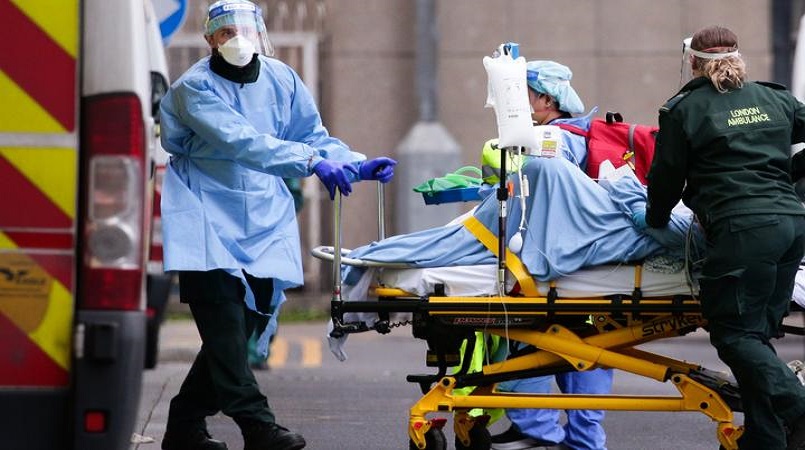
Britain reported 1564 new deaths within 28 days of a positive test for Covid-19 on Wednesday, a record daily toll, meaning more have died in the second wave of the pandemic than the first wave last year, a health official said.
The reported daily number of deaths exceeded the 1325 recorded on 8 January and comes as Britain battles a new, more transmissible variant of the virus. The government figures showed there were another 47,525 cases, up from 45,533 new cases on Tuesday.
Britain is targeting a 24-hour, 7-day a week Covid-19 vaccination programme as soon as possible, Prime Minister Boris Johnson said, as he bids to step up the pace of the rollout with daily coronavirus deaths at record levels.
AstraZeneca executives said the company was on track to deliver 2 million doses of its shot a week by mid-February, and Johnson said increased availability would be crucial to scaling up to a round-the-clock service.
"We'll be going to 24/7 as soon as we can," Johnson told Parliament. "At the moment the limit is on supply."
British airline EasyJet said the National Health Service would train hundreds of its cabin crew to administer Covid-19 vaccines under a fast-track scheme designed to help boost the country's vaccination efforts.
There have now been almost 85,000 deaths in Britain - the fifth highest figure globally - and 3.2 million have tested positive for Covid-19.
"With each passing day, more and more people are tragically losing their lives to this terrible virus, and today we have reported the highest number of deaths on a single day since the pandemic began," Yvonne Doyle, the medical director for Public Health England, said on Twitter.
"There have now been more deaths in the second wave than the first."
Although the number of deaths reported daily continues to rise, the number of new cases reported daily over the last week has been below a high of 68,053 also recorded on 8 January, suggesting lockdown measures were beginning to take effect.
However, Johnson said there were about 32,000 Covid-19 patients in hospitals, about 70 percent more than during the peak of the first outbreak last April, and he said the risk of intensive care units being overwhelmed was substantial.
"(Health workers) now really are fighting very, very hard to contain this pandemic after months and months in which they've really been working flat out and I think the strain is colossal," he told lawmakers.
He said tougher restrictions brought in last week were starting to have an effect on the spread of Covid in some parts of the country, cautioning that it was still early days.
He also said he did not rule out bringing in even tougher restrictions to try to temper the spread of the coronavirus, which has largely been driven by the new variant.
